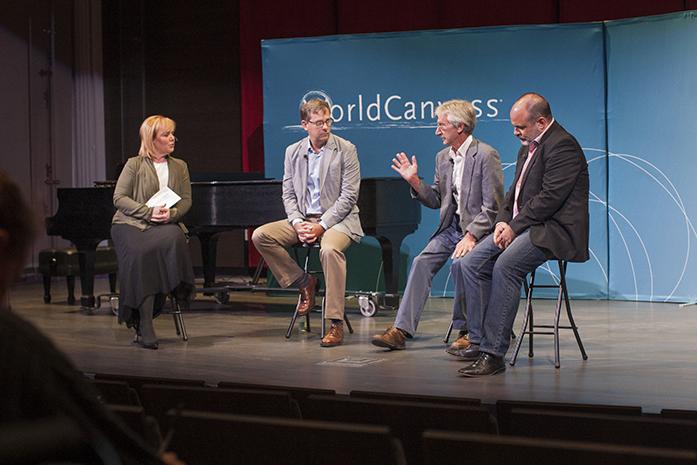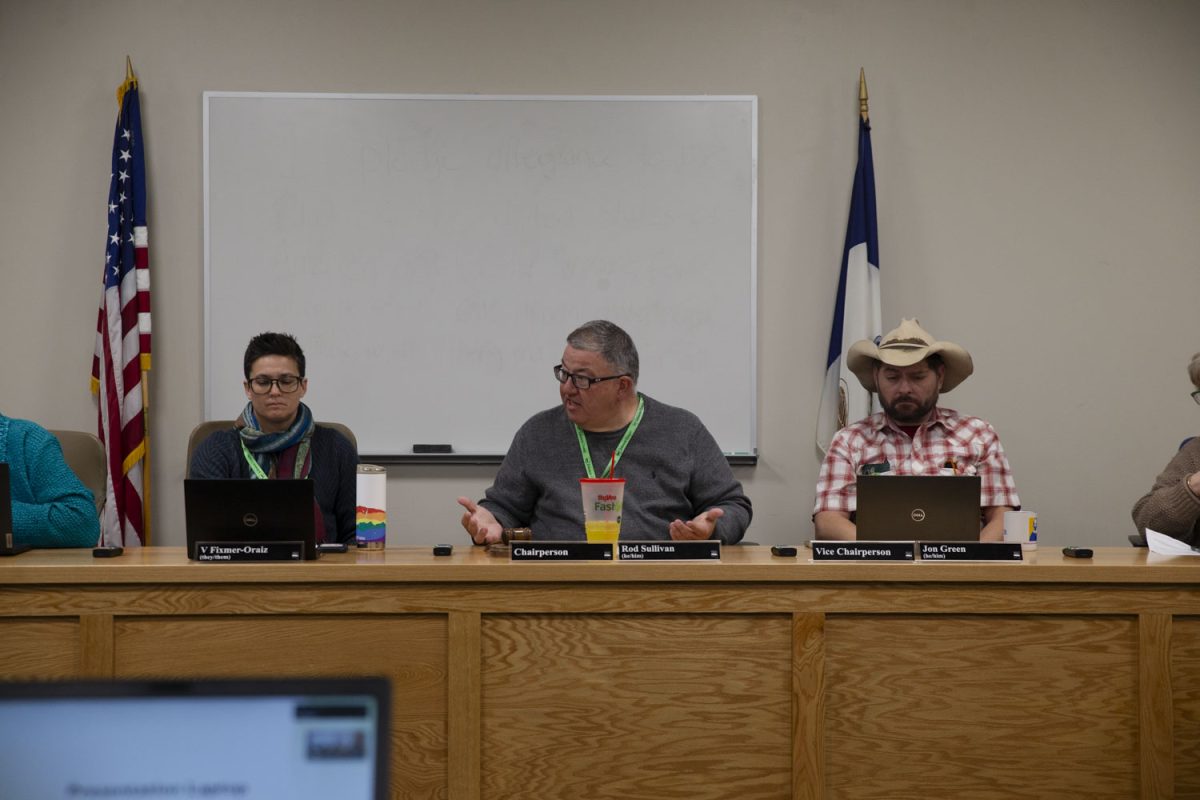By Charlie Peckman
Although some environmental activists view fracking negatively, experts have re-evaluated the pros and cons of the method.
The walls of the red recital hall in the Voxman Music Building were a stark contrast from the blue background that read “WorldCanvass” Thursday night, as a panel of professors and writers discussed the impact of fracking on the environment.
The event, which was one of the first to be held at the brand-new Voxman, was part of the “World Canvass” lecture series.
The series of lectures runs once a month and will be held primarily at the music building this year. It aims to explore a variety of international topics, all of which help “individuals fit into the global landscape,” according to the University of Iowa International Programs website.
Joan Kjaer, the host of the event, said the aim of the event was to investigate fracking, the topic of this month’s discussion, which is an important yet controversial energy-production method that has been debated in the realms of politics and environmental activism for decades.
“[The purpose of this event is] investigating the important and controversial energy production form from as many viewpoints as we can,” she said.
Fracking is a type of drilling that combines hydraulic fracturing and horizontal drilling. This is different from conventional drilling, because fracking does not focus on vertical wells like older forms of drilling do.
The reason vertical wells are considered antiquated is simple, said Tyler Priest, a UI associate professor of history and geography. Because 90 percent of the United States’ oil and gas are derived from fracking, the vertical wells of yesterday are diminishing in number, he said.
Fracking has raised the eyebrows of environmental activists since its inception, and Priest said their protests are valid. But if fracking were to be abandoned, he said that people should “understand the ramifications of that.”
The country now produces 9.3 million barrels of oil per day, which is more than the next seven providers of crude oil. This means that even a decrease in the production of oil would result in an economic disadvantage, Priest said.
The increase in oil production, which yields an increase in capital, has advantages, Priest said, noting there are the upsides of fracking that people do not often hear about.
Although Iowa does not contribute directly by fracking, the state does provide some of the sand grains needed for the fracking process, said Bob Libra, a state geologist of Iowa. He said this makes Iowa “quite perfect for the fracking industry.”
Iowa does have a problem with fracking however.
“When you do any kind of mining, it’s not a pretty sight,” Libra said.
Aesthetic changes aside, mining can cause an increase in traffic and disruptions in the communities that surround the mines, he said.
“Iowa does benefit greatly from fracking,” Libra said.







